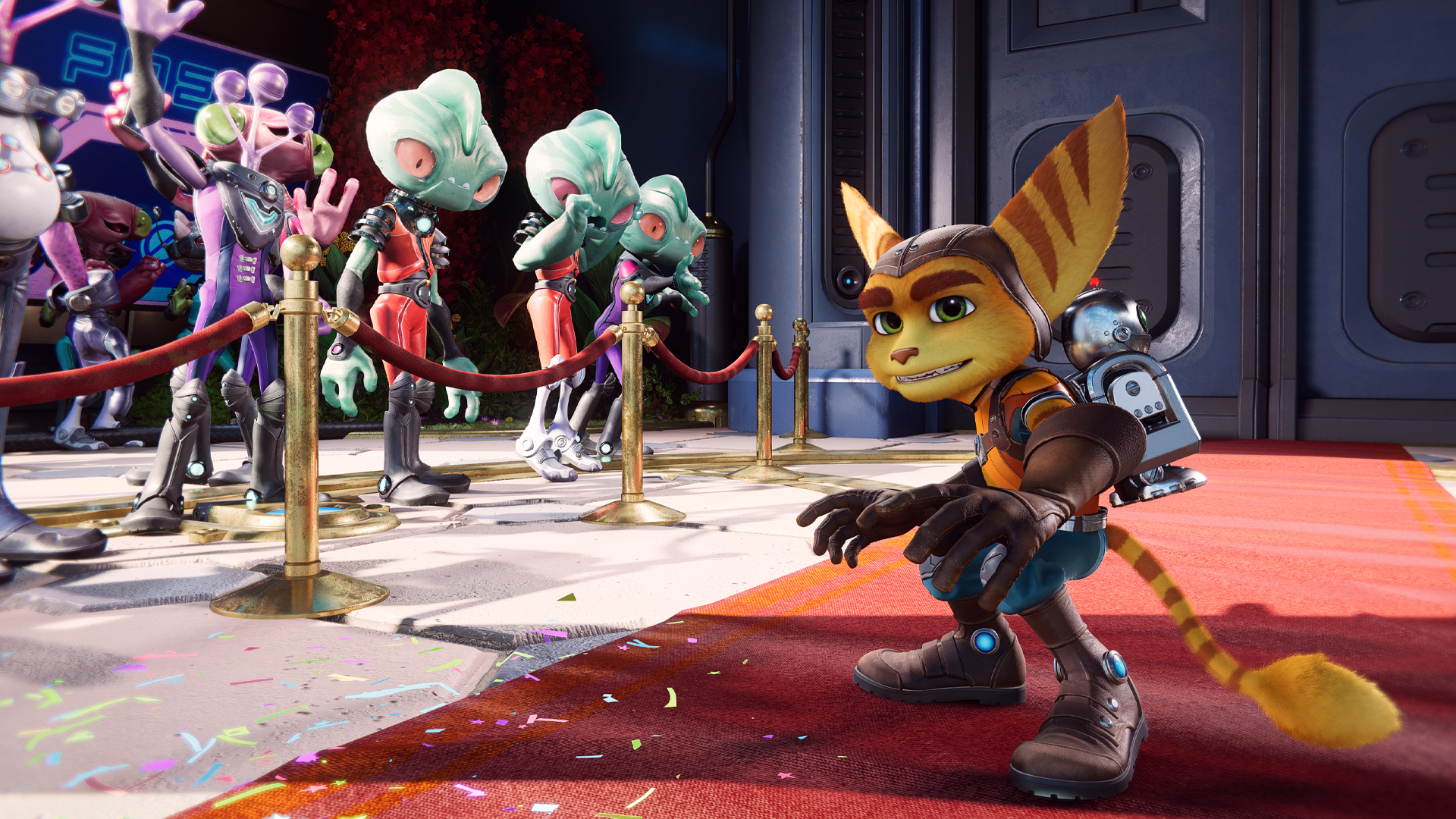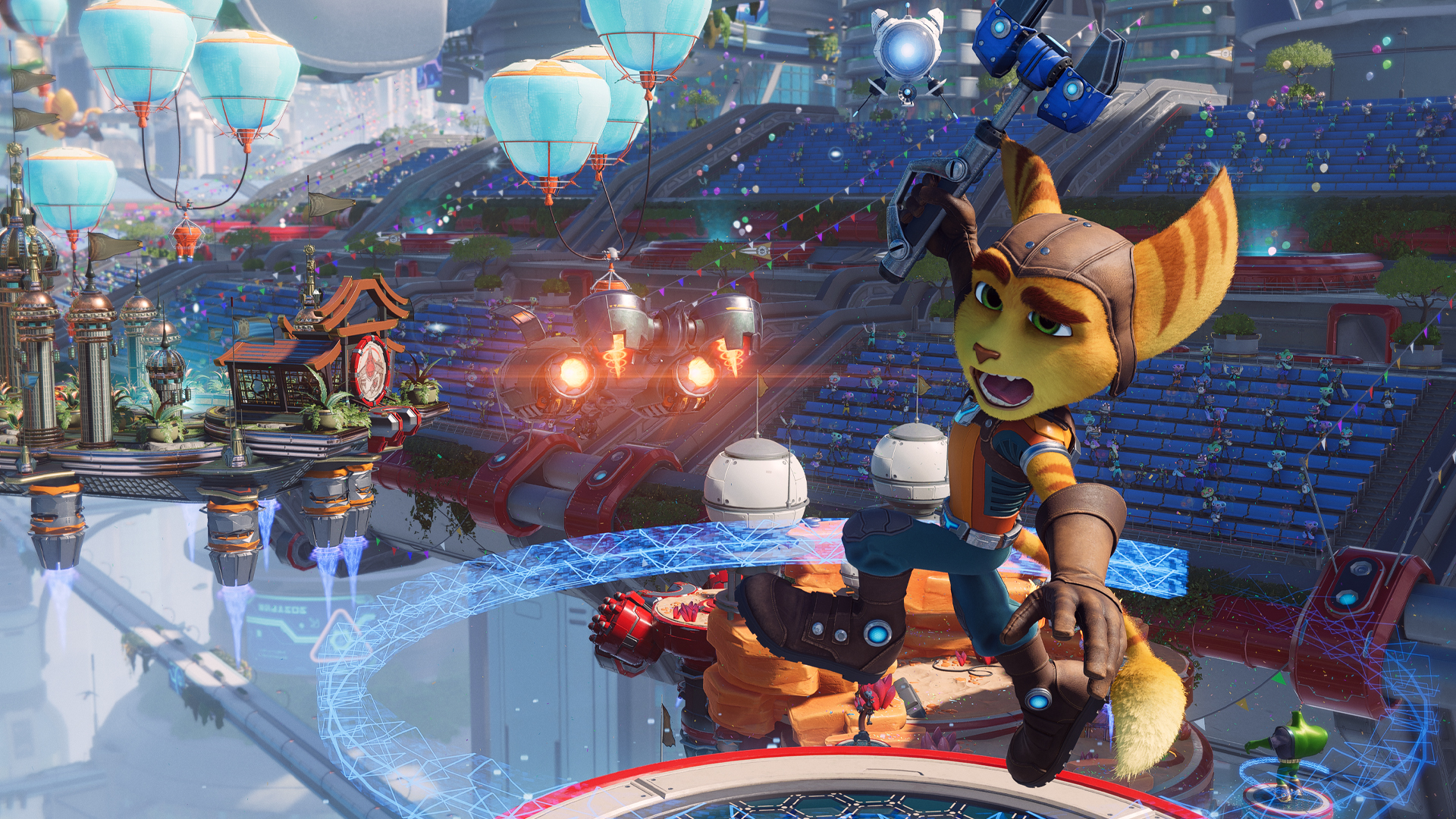The latest Ratchet & Clank has restored my faith in high-end PC gaming — here's why
Rift Apart is the port PC gamers finally deserve

Here at Tom’s Guide our expert editors are committed to bringing you the best news, reviews and guides to help you stay informed and ahead of the curve!
You are now subscribed
Your newsletter sign-up was successful
Want to add more newsletters?

Daily (Mon-Sun)
Tom's Guide Daily
Sign up to get the latest updates on all of your favorite content! From cutting-edge tech news and the hottest streaming buzz to unbeatable deals on the best products and in-depth reviews, we’ve got you covered.

Weekly on Thursday
Tom's AI Guide
Be AI savvy with your weekly newsletter summing up all the biggest AI news you need to know. Plus, analysis from our AI editor and tips on how to use the latest AI tools!

Weekly on Friday
Tom's iGuide
Unlock the vast world of Apple news straight to your inbox. With coverage on everything from exciting product launches to essential software updates, this is your go-to source for the latest updates on all the best Apple content.

Weekly on Monday
Tom's Streaming Guide
Our weekly newsletter is expertly crafted to immerse you in the world of streaming. Stay updated on the latest releases and our top recommendations across your favorite streaming platforms.
Join the club
Get full access to premium articles, exclusive features and a growing list of member rewards.
Being a longtime PC gamer and a fan of high-end hardware, the last year or so has been tough. The Last of Us Part 1, Redfall, Star Wars Jedi: Survivor, Wo Long: Fallen Dynasty and Forspoken have represented varying levels of disastrous console-to-PC ports at time of launch.
When you love and invest in top-tier desktop hardware like I have, such a seeming disdain for PC and laptop gaming is the most bitter of pills to swallow. As the (privileged) owner of an Nvidia GeForce RTX 4090 GPU, I should be enjoying the best, most advanced experiences in gaming, but that’s simply not been the case over the last few years.
Thankfully, the recent PC port of Ratchet & Clank: Rift Apart has helped heal some serious wounds. Not only is one of the best PS5 games finally available on gaming rigs everywhere, it’s also a reassuringly good port at a time when players desperately need to be shown the industry still cares about PC gaming at a cutting edge level.
That Rift Apart is such an assured conversion is not a huge surprise, considering it’s a Nixxes Software joint. Pound for pound, this is one of the best studios in the world when it comes to remastering / porting console games to PC.
The team’s work on the latest Ratchet game is something else. The accomplished PC port may not hit the highest levels of bespoke ray traced reflections seen in the PS5 original (thanks to Digital Foundry for its in-depth cross-platform analysis), but the results are still seriously impressive.
Rift me up

When it orignally launched, Rift Apart was the poster child for the PS5’s awesome SSD. The console’s M.2 NVMe drive can hit uncompressed speed data of around 5,500MBps, which leads to almost instantaneous loading in not only the latest Ratchet game, but also Spider-Man: Miles Morales.
I’ve been playing Rift Apart on a gaming PC with a Sabrent Rocket 4 Plus SSD. Admittedly, this is no small potatoes in terms of hardware. My SSD can process data up to 5,800MBps, making it faster than the PS5’s internal NVMe drive.
Get instant access to breaking news, the hottest reviews, great deals and helpful tips.
You don’t need a blisteringly fast SSD to enjoy Ratchet on PC or laptop, though. As Digital Foundry has shown with its breakdown, this is a port that works well on both high and low-end hardware. That may represent low-hanging fruit, but a PC port that matches the best PS5 and best Xbox Series X games in 2023 is nothing to be sniffed at.
I’ve had so many disappointing times with my rig recently, I’ve started to question my love for PC gaming. Yet the latest Ratchet has changed that.
After playing the game at 4K resolution comfortably above 60 fps with full ray tracing enabled thanks to Nvidia DLSS on my rig, I’m in no doubt that Nixxes has served up one of the PC gaming experiences of the year.
More from Tom's Guide

Dave is a computing editor at Tom’s Guide and covers everything from cutting edge laptops to ultrawide monitors. When he’s not worrying about dead pixels, Dave enjoys regularly rebuilding his PC for absolutely no reason at all. In a previous life, he worked as a video game journalist for 15 years, with bylines across GamesRadar+, PC Gamer and TechRadar. Despite owning a graphics card that costs roughly the same as your average used car, he still enjoys gaming on the go and is regularly glued to his Switch. Away from tech, most of Dave’s time is taken up by walking his husky, buying new TVs at an embarrassing rate and obsessing over his beloved Arsenal.
 Club Benefits
Club Benefits










